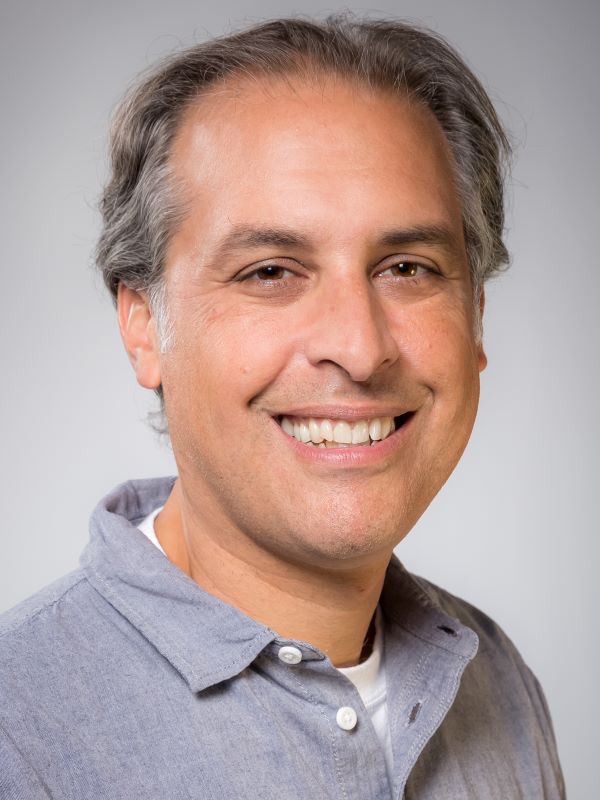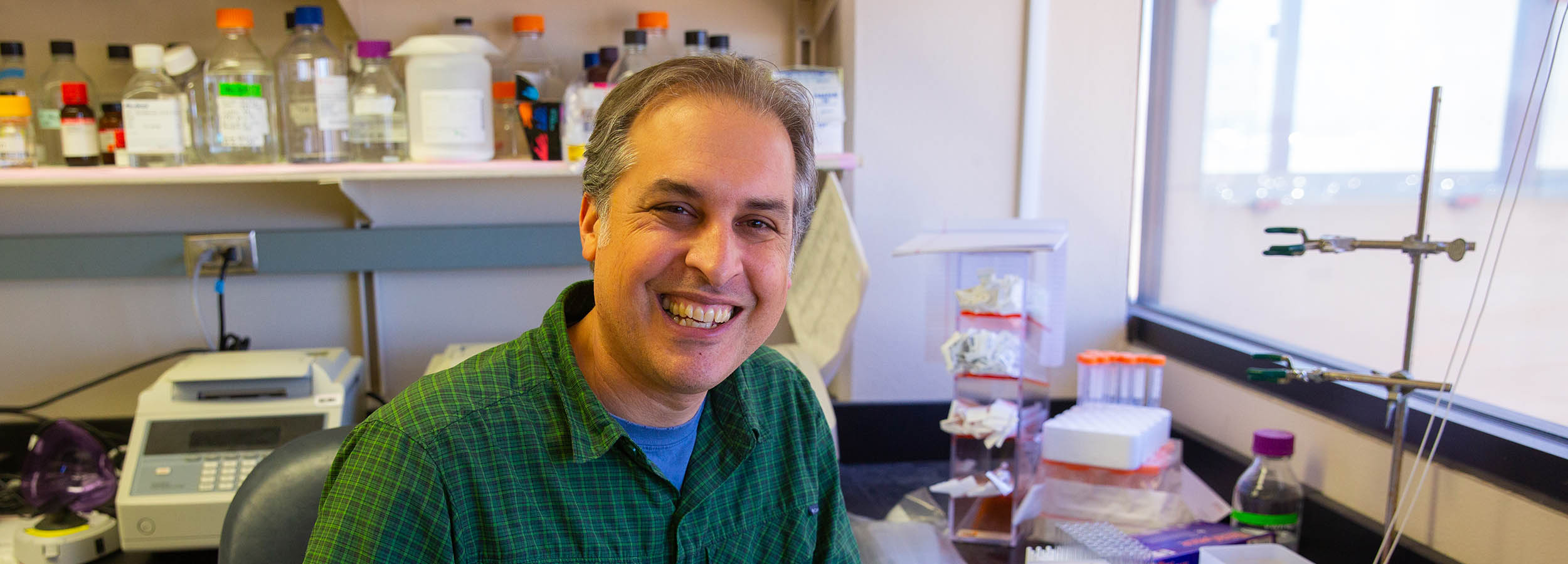It is notoriously difficult to develop an effective vaccine against malaria, a mosquito-borne disease that infects around a quarter billion people worldwide each year, according to the World Health Organization.
University of New Mexico researchers are working to engineer a vaccine capable of eliciting antibodies to attack a protein on the surface of the Plasmodium falciparum parasite that will prevent it from entering the liver and triggering a full-blown malaria infection.
“We want to develop vaccines that are more effective and more durable,” says Bryce Chackerian, PhD, the Jeffrey Michael Gorvetzian Endowed Professor of Biomedical Research Excellence, Regents Professor & Vice Chair of the Department of Molecular Genetics & Microbiology in the UNM School of Medicine.
Chackerian is the principal investigator for a new five-year, $3.1 million grant from the National Institute of Allergy and Infectious Diseases to find ways of making vaccines do a better job of targeting the circumsporozoite protein (CSP), which sits on the parasite’s surface.
The world’s first approved malaria vaccine known as RTS,S, is being implemented primarily in Africa. “It doesn’t work super well,” Chackerian says. “It only has a 30-40% efficacy in preventing children from getting infected, and that protection only lasts for a very short time.”
A number of research groups have focused on various phases of the Plasmodium parasite’s complex life cycle, which starts with a mosquito bite that injects the microbes into the bloodstream. The UNM team wants to shut down the parasite as early as possible, before it enters the liver or infects red blood cells.

We are trying to find the most vulnerable part of the malaria parasite – in other words, what is the Achilles heel of this protein?
“We had gotten interested in developing new vaccines that targeted the circumsporozoite protein,” Chackerian says. “We are trying to find the most vulnerable part of the malaria parasite – in other words, what is the Achilles heel of this protein?”
Chackerian’s team specializes in using virus-like particles (VLPs) – essentially viruses that have had their DNA removed so that they cannot cause an infection. His lab creates a vaccine by attaching a small portion of the CSP protein to the outer shell of the VLP that is capable of stimulating the production of antibodies to attack the parasite.
“Our vaccines are targeting this very tiny piece of the protein that is particularly vulnerable to antibodies,” he says. “The idea is by just choosing a tiny little piece we can maximize the effectiveness of the antibody response.”
Preliminary results show that this approach creates a potent antibody response, Chackerian says, but it is not yet perfect. That poses a problem because “if the vaccine doesn’t work 100 percent at blocking the parasite from the liver, it’s not going to be effective.”
The new grant will fund efforts to improve the vaccine’s effectiveness, in part by testing different adjuvants – substances administered along with the VLPs that stimulate a stronger immune response. “We use those adjuvants to get the levels of antibodies we’d like to see,” Chackerian says. We’re also trying to figure out ways to extend the longevity of the antibody response.”
Chackerian credits the Gorvetzian endowment, established in 2020 by Albuquerque physicians Joseph Gorvetzian and his wife, Nancy Croker, in memory of Joseph’s late brother, Jeffrey Michael Gorvetzian, with helping to fund the vaccine research in his lab.
“It’s a pretty good investment,” he says. “It opened the door for the new NIH grant.”
Jeffrey Gorvetzian, who died unexpectedly in 2019, had a deep interest in bioscience, so it seemed appropriate to create an endowment in his name, Joseph Gorvetzian says.
“We found out about Bryce, and he started telling us malaria vaccines,” Gorvetzian says. “We thought this is something my brother would have really liked. We had the means to do it, and one thing led to another.”
Coincidentally, their son Joey, who graduated from the UNM School of Medicine in 2019, had Chackerian as his first-year block mentor, Croker says.
Chackerian’s malaria research is especially meaningful for the couple, she says, because they support children in Africa, where the disease is endemic. “We’re just grateful we’re in a position to help.”
